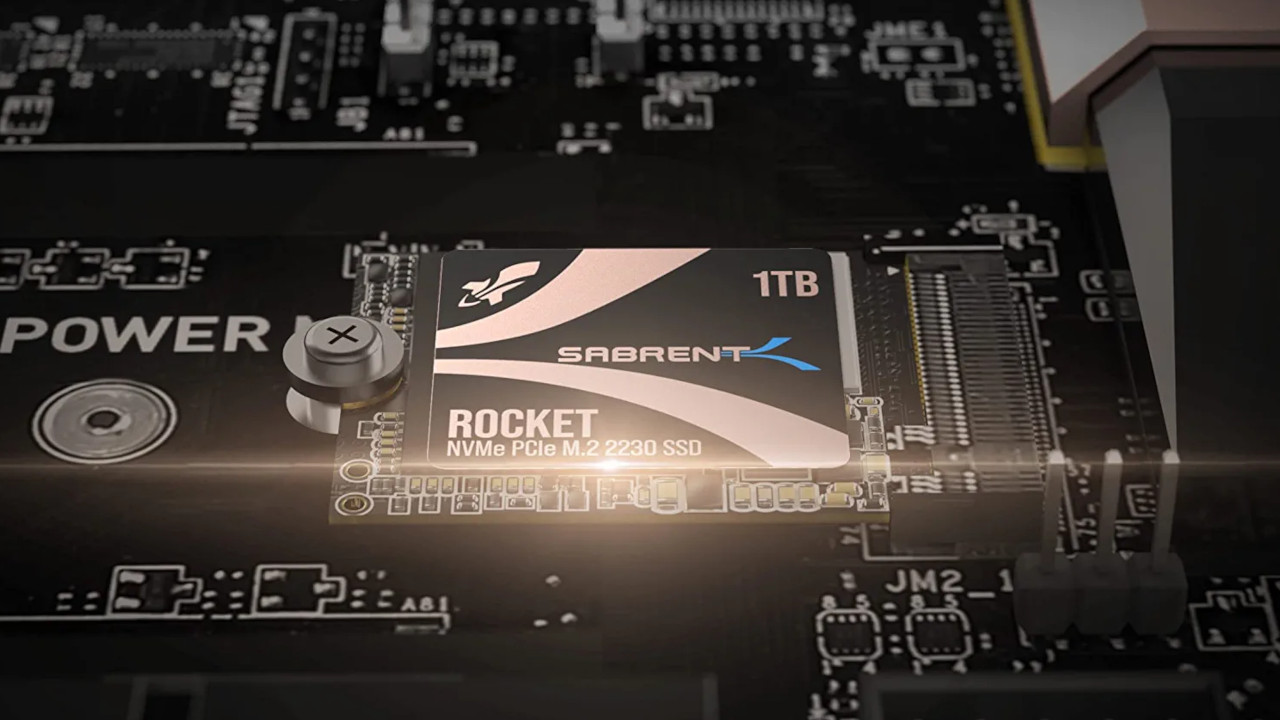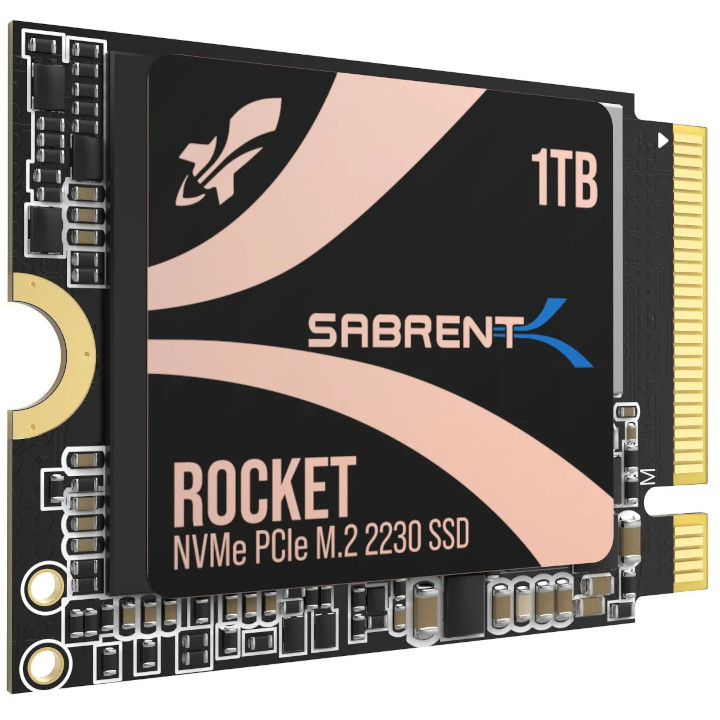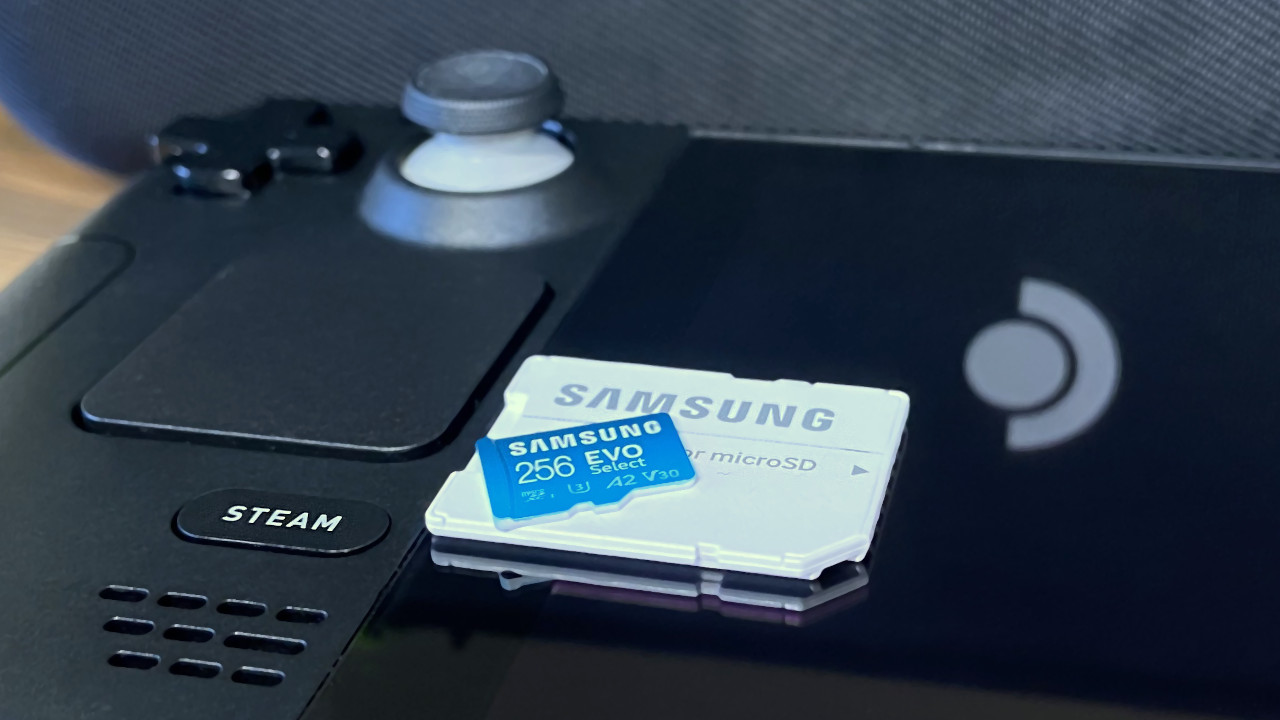Sabrent's upcoming M.2 2230 SSD is perfect for Steam Deck
The best Steam Deck SSD upgrade finally has a release date.

All the latest news, reviews, and guides for Windows and Xbox diehards.
You are now subscribed
Your newsletter sign-up was successful
What you need to know
- The Sabrent Rocket 2230 NVMe 4.0 1TB solid-state drive is up for pre-order on the official Sabrent website and third-party retailers for $170 MSRP.
- Available in 256GB, 512GB, and 1TB sizes, the M.2 SSD is backward compatible with Gen3 and Gen2 PCIe slots with reduced bandwidth.
- Amazon US lists January 20, 2023, as the expected release date, with a lower $150 price.
- Official listings reference the Steam Deck and Microsoft Surface as compatible devices.
Recent rumblings of a Steam Deck-compatible storage drive receive an official confirmation with an official listing on Sabrent's website and third-party retailers for the Rocket 2230 NVMe 4.0 1TB solid-state drive. Previously known as NGFF (next-generation form factor) SSDs, the M.2 2230 finds its name from the 22 x 30mm size, an exact match for the internal drive found in Valve's Steam Deck console.
Valve had previously asked users not to modify the Steam Deck SSD in fear of incompatible replacements affecting thermals and airflow management around the carefully selected layout of components. Some owners successfully installed slightly larger M.2 2242 drives, even re-applying the included thermal pad. Still, modifying the internal space was enough to alarm UX developer Lawrence Yang who followed up with caution against the early DIY upgrades.
This latest offering from Sabrent will appeal to any Steam Deck owners willing to tinker with their console and expand the storage beyond their chosen model. Replacing an M.2 SSD is about as simple as hardware modifications get, though you'll need to disconnect the console's battery to gain access to its single screw fixing. The Rocket 2230 drive matches the necessary dimensions, as detailed in its official specifications.
| Header Cell - Column 0 | SABRENT Rocket 2230 NVMe 4.0 1TB |
|---|---|
| SKU | SB-2130-1TB |
| UPC | 8-40025-25937-9 |
| Speed | Up to 5GB/s |
| Dimensions | 1.18 x 0.87 x 0.08in |
| Weight | 1.23oz |
Amazon US lists the Rocket 2230 NVMe 4.0 1TB variant for $150, cheaper than the $170 MSRP set on Sabrent's official website, with an expected January 20, 2023, release date. Customers can pre-order the SSD with the earliest deliveries fulfilled between January 24 to 27, 3023.
Windows Central take — The first viable storage upgrade
Valve's handheld console impresses me with each update released regularly by developers to improve stability with modern games and offer more versatility to its portable PC. One of the only drawbacks to Steam Deck is its high asking price, especially for the high-end 512GB model. I'm not arguing the concept of value since I play mine every day, using it to catch up on an embarrassing backlog.
Expecting gamers to settle for a 64GB entry-level Steam Deck, on the other hand, is laughable. Games such as Red Dead Redemption exceed 100GB, cutting them out entirely, and updates to the Proton compatibility layer will eat up storage space alongside other necessary firmware. Rather than relying on microSD external storage, the Sabrent Rocket 2230 SSD looks to be the first viable DIY upgrade for the Steam Deck that doesn't jeopardize its internals.
How challenging the process is, remains to be seen from a personal perspective. I have spoken with other owners who carried out the upgrade alongside fan replacements, and it doesn't seem all that difficult. I'm reaching out to Sabrent to see if we can work out a sample unit for Windows Central, tearing apart our very own Steam Deck for a storage-enhancing operation.
All the latest news, reviews, and guides for Windows and Xbox diehards.

Ben is a Senior Editor at Windows Central, covering everything related to technology hardware and software. He regularly goes hands-on with the latest Windows laptops, components inside custom gaming desktops, and any accessory compatible with PC and Xbox. His lifelong obsession with dismantling gadgets to see how they work led him to pursue a career in tech-centric journalism after a decade of experience in electronics retail and tech support.


